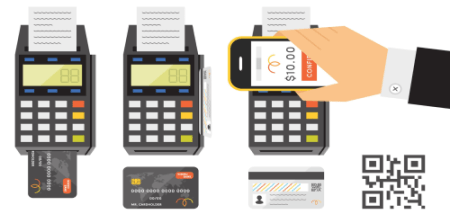What are Corporate Credit Cards? – Different Types of Cards
April 3, 2025
 What are Corporate Credit Cards? – Different Types of Cards
What are Corporate Credit Cards? – Different Types of Cards
Credit cards have been a great financial innovation that has revolutionized personal banking. As far as retail banking is concerned, credit cards offer one of the best returns on investment for banks. Credit card divisions at most banks have been growing at a rapid pace. Over time, commercial banks realized that there is no need…
 Challenges Faced by Commercial Banks
Challenges Faced by Commercial Banks
Commercial banking has been around for a very long time. Ever since the birth of corporations more than three centuries ago, banks have been providing services to large corporations in one form or the other. Over the years, the commercial banking model has been relatively stable. Of course, with the passage of time, newer and…
 Check Printing and Mailing Services offered by Commercial Banks
Check Printing and Mailing Services offered by Commercial Banks
Corporations all across the world make a wide variety of payments via checks. This includes statutory payments, payments to utility vendors as well as many other vendors who do not have access to electronically enabled payment systems. These checks are automatically issued using a digital signature. The process of creating and issuing these checks is…
With the advent of technology, more and more people have started accepting digital payments. This means that corporations have to provide their customers the option to make payments using a wide variety of payment methods. Some of these payment methods are electronic whereas others are not. Commercial banks have identified the possibility of providing good services to their clients by providing an automated point of sale system which helps these corporations provide more convenience to their customers.
In this article, we will have a closer look at what point-of-sale systems are and how commercial banks utilize them to provide value-added services to their customers.
A point-of-sale system is a combination of hardware and software which allows any merchant to take payments from their customers. The point-of-sale system has been created to accept payments from a wide variety of payment methods. This can include traditional methods such as checks and cash. On the other hand, it generally includes more modern methods such as credit cards with magnetic stripes, credit cards with integrated chips, mobile wallets, and digital payments using the quick response (QR) code.
A point-of-sale system is a set of hardware and software which communicates with other banks and payment processors in order to make digital and contactless payments possible. Since most of the sales in the developed world are done using electronic payment methods, a point-of-sale system becomes very important.
Commercial banks provide their customers with this point-of-sale service in return for a fee. Commercial banks charge the customer's account, provide settlement data at the end of the day and transfer the cash to the bank account of the merchant without any significant delay.
Point of sale systems are very important for corporations across the world. This is because a lot of purchases made by the modern consumer are impulse purchases made instantaneously. Hence, businesses want to have a point-of-sale system that allows consumers to have as many payment methods as possible, and also the payment should be processed as quickly as possible. Businesses across the world have the need for a high-tech point of sale system which they can strategically utilize in order to grow their business. Commercial banks have the capability to provide these services to these business houses.
Commercial banks charge a transaction fee when funds are routed through their systems. Hence, if a merchant receives $100 via a point-of-sale system, they may receive only $98 after deducting a commission. The percentage of commission being taken becomes smaller and smaller as the volume of transactions increases.
Large-scale retailers pay a very small percentage of their revenues to commercial banks. Revenue from point-of-sale systems is a significant contributor to the overall revenue being generated by commercial banks.
Nowadays, banks have started facing some competition from newer more technologically advanced fintech companies. However, even to date, the business of point-of-sale systems is almost completely controlled by commercial banks.

There are many benefits provided by point-of-sale software systems which make them very popular amongst businesses. The details of these benefits have been mentioned below:
The bottom line is that point-of-sale systems are a very important commercial banking service that is offered to corporate clients. Point of sale systems has moved beyond being transactional devices to becoming strategic marketing devices.
Your email address will not be published. Required fields are marked *